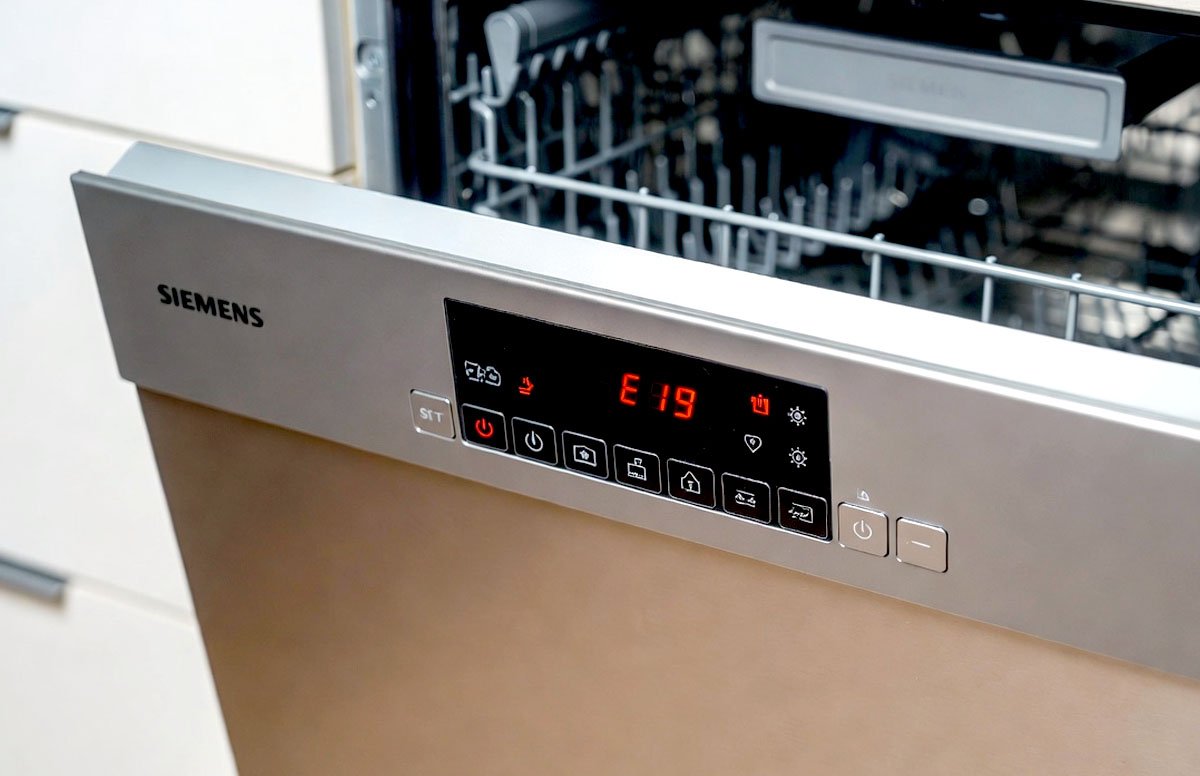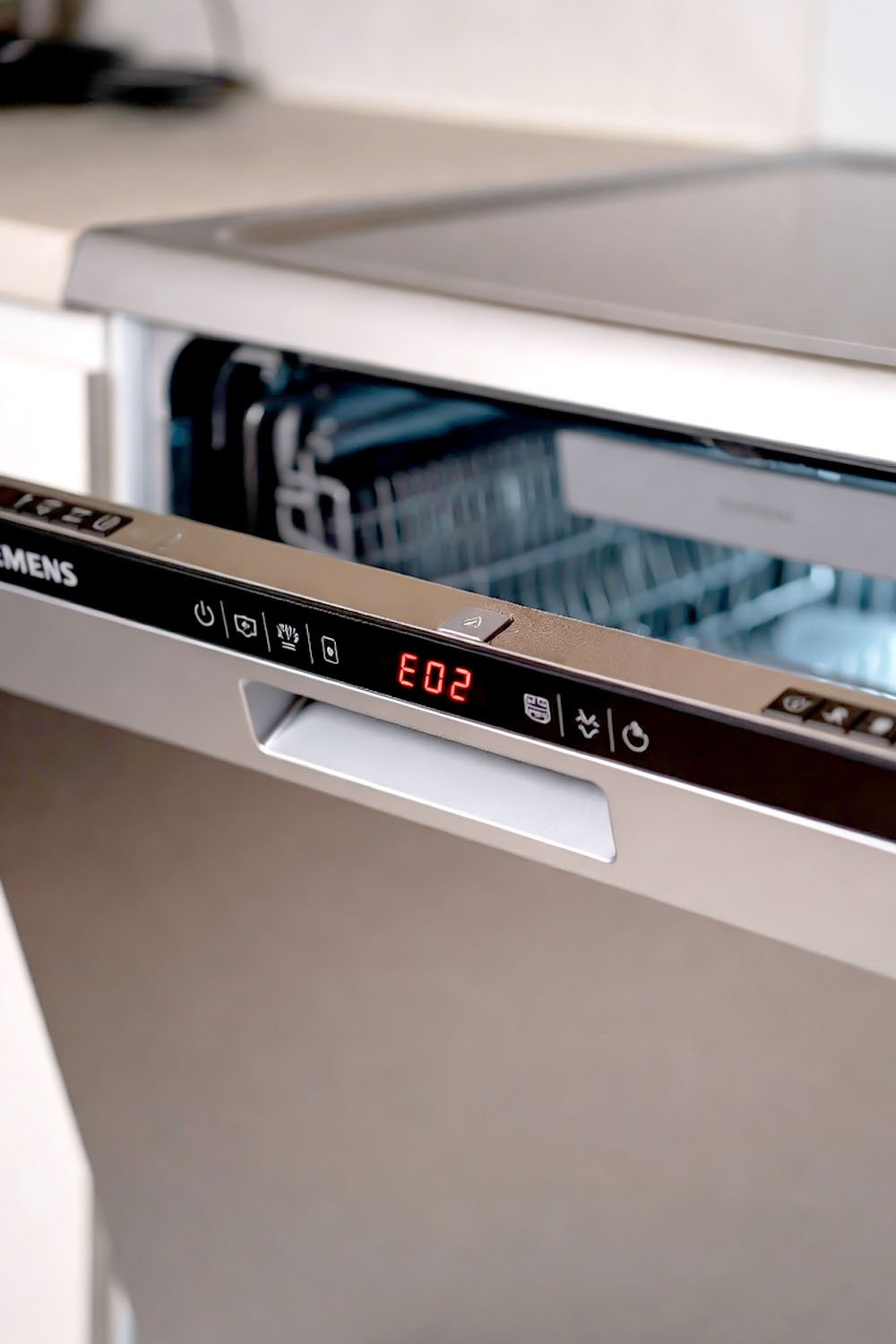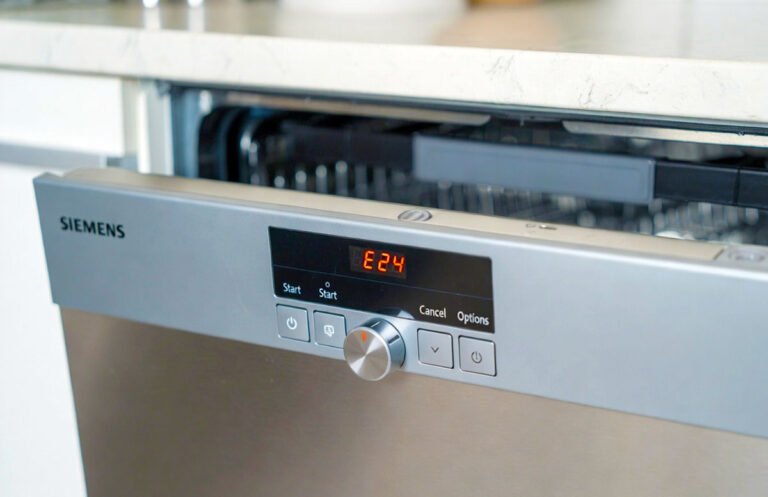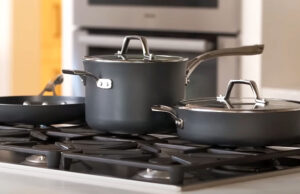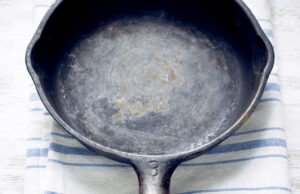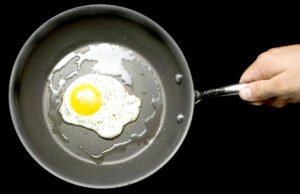As an Amazon Associate, I earn from qualifying purchases at no extra cost to you.
What Happens If You Put Dish Soap in the Dishwasher?
You love clean dishes, right? You’ve probably wondered: What happens if you put dish soap in the dishwasher? You’re not alone. I tried it once—thinking it would get things extra clean—only to be greeted by a mountain of suds flooding the kitchen. In this article, you’ll get a clear answer: don’t do it. I’ll show you why it happens, what you can do to fix it, and how to keep your dishwasher working just right.
Reasons Why Putting Dish Soap in the Dishwasher Can Be Problematic
When you use regular dish soap inside a dishwasher, the problems begin almost right away. Dish soap is designed to create lots of suds. In a sink, plenty of air and water help those suds rinse away easily. But inside a dishwasher, the environment is very different. The machine is a closed system. It sprays water under pressure and keeps the soap inside while cleaning. That means suds build up fast.
When bubbles fill the dishwasher’s tub, they overflow out the door, onto the floor, and sometimes into the kitchen. It becomes a big, slippery mess. The foam can leak from the dishwasher’s seals, clog drain lines, or even get into the machine’s pump. This can damage the motor and internal parts. You could end up needing costly repairs or even a full replacement.
But there’s more. The foamy suds can coat heating elements, plastic parts, and spray arms. That means poor cleaning results and even harder rinsing. You might run the machine again to fix things—using more water, energy, and time. You end up wasting detergent, electricity, and water. Not good for your bills or the planet.
Another big problem: dish soap inside a dishwasher can leave a residue on your dishes. The suds don’t rinse off as well as dishwasher detergent. You might spot white films, leftover bubbles, or a slimy feeling on plates, glasses, and utensils. That film can even leave a strange taste. Yuck.
Because of all that, manufacturers tell you clearly: use only dishwasher detergent. It has different ingredients that clean without creating suds. It’s balanced to rinse cleanly and quickly at high heat.
Here’s a quick rundown of why dish soap is a bad idea in a dishwasher:
- It makes excessive suds that overflow and flood your floor.
- Suds clog pumps and spray arms, leading to breakdowns.
- It wastes water, energy, and detergent.
- Suds cause residue on dishes and weird tastes.
- It can damage internal parts and seals.
You want your dishes clean and your machine working great. Dishwasher detergent is low-sudsing by design. It cleans, rinses, and protects your dishwasher. That’s why you should never use regular dish soap inside it.
- Regular dish soap foams too much.
- Foam can leak, clog, and damage your dishwasher.
- Dishes may come out dirty or with soap film.
- Dishwasher detergent is designed for safe, effective cleaning.
- Always follow the manufacturer’s guidelines.
How to Fix a Mess When Dish Soap Floods Your Dishwasher
Finding suds spilling onto the kitchen floor can be really scary. But don’t panic—we can walk through it together and get things cleaned up quickly.
First thing: shut off the dishwasher. Open the door slowly to avoid bubbles bursting everywhere. Keep a towel ready. Let suds calm down before you start removing them.
Now unplug the dishwasher or turn off its circuit breaker. You don’t want water and electricity near each other. Safety first!
Use a dustpan or small container to scoop out big suds. Place everything in a large bucket. Next, remove racks, silverware baskets, and small parts you can easily carry out.
Use a few dry towels to soak up remaining suds. Then use a wet/dry vacuum or wet mop to clean up water, suds, and slippery film around the dishwasher.
With racks and parts removed, wipe the interior of the dishwasher using warm water and a little vinegar. Vinegar helps break down soap residue. Rinse with clean water afterward.
Check and clean the dishwasher drain. Suds may have clogged it. Use gloves and a flashlight, remove debris, and flush it with water and vinegar. If suds spread into the drain hose, run a few cycles with plain warm water to flush it out.
Finally, run an empty dishwasher cycle with plain white vinegar or citric acid. This helps rinse and remove leftover sudsy residue. Once done, wipe it dry to ensure no hidden foam remains.
Need to clean any floor residue? Use warm water and mild detergent on the tiles or wood. Rinse and dry thoroughly to remove slipperiness.
After cleanup, be sure to use the right dishwasher detergent. Most are low-sudsing and machine-safe. Use the correct amount recommended for normal soil. This prevents future foam issues and keeps dishes clean.
If issues persist or your machine seems damaged, don’t hesitate to call a professional technician. Better safe than sorry.
- Turn off power, open door slowly, mop up suds.
- Remove racks, wipe interior with warm water and vinegar.
- Check and clear the drain, flush with vinegar.
- Run an empty cycle to rinse residual suds.
- Clean the surrounding floor thoroughly.
- Use proper dishwasher detergent afterward.
- If needed, get professional help.
Why Dishwasher Detergent Is the Right Choice
Dishwasher detergent is very different from dish soap. It’s made specifically for dishwasher use.
Dishwasher detergent has low-foaming agents. That means it doesn’t create bubbles like dish soap does. This allows water to spray and rinse without making a mess.
It also has powerful cleaning enzymes and surfactants. These break down food, grease, and proteins even at lower temperatures. That’s why your dishwasher gets dishes shiny clean without needing super hot water.
Many dishwasher detergents include rinse aids or anti-spot agents. They prevent mineral buildup and water spots on dishes, glasses, and silverware. The hot rinse cycle activates these agents to give a sparkling finish.
Here’s what dishwasher detergent gives you:
- Safe, low-sudsing formula for closed machine systems.
- Cleaning enzymes that remove grease, starch, and proteins.
- Rinse aids that prevent hard water spots.
- Formulas designed to dissolve at the right time in the cycle.
- Protection for dishwasher components like pumps and gaskets.
- Cost-effective cleaning—no waste, no damage.
Even eco or plant-based dishwasher detergents are made to be low-foaming. They’re gentle, biodegradable, and still safe for dishwashers. Using them helps the environment and keeps your machine running smoothly.
When choosing a detergent:
- Look for “dishwasher detergent,” not “dish soap.”
- Pick powder, gel, or pod—whatever works for you.
- Use only the recommended amount.
- Don’t mix detergent types—pods and powders together can mess with cleaning.
Follow the manufacturer’s tips on how to load dishes, water hardness, and cycle settings. Doing so makes sure the detergent can do its job.
Switching to proper dishwasher detergent gives you clean dishes, safe operation, and no drama with suds.
- Dishwasher detergent is low-foaming and machine-safe.
- It contains enzymes and surfactants for good cleaning.
- It helps prevent spots and film.
- Designed to dissolve at the correct time.
- Protects dishwasher parts.
- Eco-friendly options are available.
- Always follow usage guidelines.
How to Choose the Right Dishwasher Detergent
Many brands and types of dishwasher detergent are out there. Choosing the right one depends on your water hardness, dish needs, and preferences.
First, check water hardness. Hard water has more minerals that cause spots and buildup. If your water is hard, pick a detergent with built-in salt or rinse aid. Soft water may just need a basic detergent.
Then decide format:
- Pods/Tablets: Easy to use—pre-measured doses. Just toss in. Offers good cleaning power. But more expensive per load.
- Gel liquid: Easy to measure and adjust dosage. Works well for light loads. Can be cheaper, but may not clean heavy loads well.
- Powder: Great for heavy-duty cleaning. Flexible dose adjustment. Usually most affordable. But can clump if stored in damp places.
Consider eco-friendly or phosphate-free formulas. Many modern detergents are biodegradable and better for the environment.
Ingredients to look for:
- Enzymes for grease and food breakdown (protease, amylase).
- Oxygen bleach or sodium percarbonate for stain removal.
- Rinse aid or sheeting agents to prevent dry water spots.
- Ingredients approved by eco-certifications like EU Ecolabel or EPA Safer Choice.
Test a few leading brands or types with your dishwasher. Notice results on dishes, film, odor, and ease of use. Read reviews online to see user experiences.
After picking one you like, store it in a cool, dry place. Keep pods in a sealed container. Close powder boxes tightly to prevent clumps.
When loading dishes, don’t overfill. Clean spray arms and avoid blocking detergent release. Choose cycles based on soil and energy, not detergent.
- Consider water hardness—choose salt or rinse aid if needed.
- Decide between pods, gel, or powder.
- Eco-friendly options are available.
- Look for enzymes, bleach, and rinse agents.
- Test and read reviews to find the best option.
- Store detergent properly.
- Load correctly and select suitable cycle.
Signs Your Dishwasher Is Damaged from Dish Soap
If you once used dish soap in your dishwasher, you’ll want to watch for damage signs. Catching them early means less cost to fix.
Excessive suds remaining even after a repair cycle likely mean soap residue still inside. You may need extra rinse cycles to clear it.
Spray arms not spinning properly can mean foam or soap blockage inside the arm holes, reducing cleaning power.
Leaks around door seals may show worn gaskets from suds buildup. Watch for drips or dampness after cycles.
Unusual noises during draining or spinning can signal pump wear or clogs.
Dishes still dirty or cloudy might mean the soap changed the inner surfaces, causing build-up that resists cleaning.
Weak wash performance—longer cycles needed to clean what’s normal—suggests lowered spray efficiency or filter clogs.
Look at the drain hose—foam inside can block flow, causing slow draining or standing water in the tub.
Unpleasant smells could come from soap residue combined with food particles left inside.
If you see any of these, try these steps:
- Run multiple vinegar rinse cycles to break down residue.
- Clean spray arms and filters carefully.
- Inspect and possibly replace door gaskets.
- Tighten or replace hoses that show leaks.
- Get help from a technician if you notice motor issues or serious leaks.
Fixing early saves money and prevents full replacement.
- Look for suds, leaks, noises, film, or weak wash.
- Inspect spray arms, seals, hoses, and filters.
- Clean with vinegar and warm water.
- Call a pro if serious damage shows.
How to Prevent This Mistake in the Future
Now that you know what happens when you use dish soap, here’s how to never make the same mistake again:
- Label storage clearly: Keep dish soap and dishwasher detergent in different colored or labeled containers. This helps prevent mixing them up when loading.
- Keep them apart: Store dish soap near your sink; keep dishwasher detergent high or in a different spot. Less chance of grabbing the wrong one.
- Create a checklist: When loading the machine, check detergent compartment to ensure you’re using dishwasher detergent—especially in low light or hurry.
- Educate family and helpers: Tell everyone: no dish soap allowed in the dishwasher. Use big, easy-to-read labels.
- Use pods or tablets: Pre-portioned pods reduce measuring mistakes. Just toss one in the compartment.
- Store lids with instructions visible: Keep container lids that say “dishwasher detergent only” attached, so reminders are always there.
- Keep emergency cleaner on hand: Store white vinegar nearby. If suds show up, you can run quick rinse cycles.
- Read machine’s manual: Follow the instructions about detergent cups, dispenser, and cycle usage.
Small habits like these save you from big cleanups and machine damage.
Key takeaways:
- Label and separate detergent types.
- Use storage strategies to avoid grabbing wrong soap.
- Use pods for convenience.
- Inform household members.
- Keep cleaning supplies ready.
- Follow manufacturer’s manual.
Benefits of Using the Right Detergent and Proper Care
Using correct detergent and caring for your dishwasher brings many benefits:
- Clean dishes every time, without spots or ghost residues.
- No messy overflows, so your floors stay dry and safe.
- Efficient cycles, saving time, water, and power.
- Longer dishwasher lifespan because parts are protected.
- Lower repair cost, no pump or seal damage.
- Better hygiene, with less mold and buildup.
- Energy savings, because tissues rinse well and heating is efficient.
- Peace of mind, knowing you’re doing things right.
A few regular care practices help a lot:
- Monthly deep clean: Run a cleaning cycle with vinegar or dishwasher cleaner.
- Clean filters and spray arms regularly to avoid clogging.
- Wipe seals and gaskets with cloth to remove grime.
- Check rinse aid reservoir and refill for cleaner dishes.
- Use correct cycle based on amount of food and soil.
You’ll get clean dishes, a happy dishwasher, and lower bills.
Key takeaways:
- Proper detergent equals great cleaning and no spots.
- Cleaner machine lasts longer and saves money.
- Simple regular maintenance keeps efficiency high.
- You get cleaner dishes and fewer headaches.
Final Thoughts
Using regular dish soap in your dishwasher leads to overflowing suds, damage, and messy cleanup. Always use dishwasher detergent designed for your machine—it cleans dishes effectively, protects parts, and prevents unwanted chaos. Practice easy habits like labeling and storing separately, using pods, and routine maintenance. This saves time, money, and stress. Take good care of your dishwasher, and it will take good care of your dishes—and your kitchen!
Frequently Asked Questions (FAQs)
Is it okay to use dish soap if I’m out of dishwasher detergent?
No, you shouldn’t use dish soap in place of dishwasher detergent. Dish soaps create too much suds that can flood your dishwasher and cause damage. They aren’t formulated to break down effectively in the high-heat, low-suds environment inside the machine. If you run out of proper detergent, it’s better to wait until you can get one, or use a tablespoon of baking soda as a temporary rinse aid—but never full-strength dish soap.
Can I use a little dish soap with dishwasher detergent?
It’s best not to mix regular dish soap with dishwasher detergent. Even a small amount can produce excessive foam, risking leaks and machine damage. Stick to only dishwasher detergent. If you want extra cleaning power, try using a commercial dishwasher cleaner for deep-clean cycles.
Do I need to clean the dishwasher after dish soap flood?
Yes, absolutely. After dish soap floods the machine, you must remove racks, mop up suds and water, clean the pump and filters, and run vinegar rinse cycles. Don’t skip it. Hidden soap can cause residue, odors, and ongoing issues. Proper clean-up protects the machine and ensures it works well.
Is dishwasher detergent worse for the environment than dish soap?
Not necessarily. Many dishwasher detergents are now phosphate-free, biodegradable, and eco-friendly. Regular dish soap may contain phosphates too which harm waterways. The key is to pick an eco-label dishwasher detergent and use it properly to minimize waste. Using the right product in the right machine is better for both your dishwasher and the planet.
Can using dish soap void the dishwasher warranty?
Yes, in many cases. Manufacturers specify using only dishwasher detergent. If suds or damage caused by dish soap mess up parts like pumps or seals, it can void the warranty. That means you might pay repairs that should have been covered. Avoid the risk—follow the manual.
Do pods work better than powder or liquid detergent?
Pods are convenient and pre-measured, so you won’t overuse. They offer strong cleaning power and rinse well. But they tend to cost more per load. Powder gives flexibility and can be cheaper. Gel liquids are easy to dose too. Choose what fits your needs—water hardness, budget, and performance.
Is vinegar an effective cleaning aid for dishwasher?
Yes, plain white vinegar is great for cleaning after a suds accident or for monthly maintenance. It helps dissolve soap residue, remove deposits, and refresh the interior. Run an empty cycle with a cup of vinegar on the top rack. Then run a plain water cycle afterward. It’s cheap and eco-friendly.
Can hard water make dish soap flooding worse?
Yes. Hard water contains minerals that reduce soap effectiveness and boost suds formation. So if you add regular dish soap into hard water inside the dishwasher, you’ll get even more foam and residue. That combination makes spills and damage more likely. In hard water areas, using proper dishwasher detergent is even more important.

